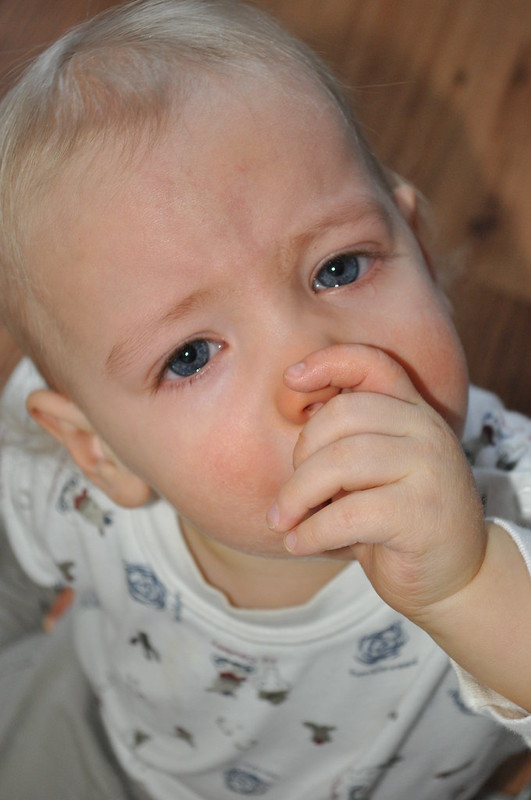Thumb sucking involves placing the thumb into the mouth and rhythmically repeating sucking contact for a prolonged duration. This behaviour is commonly found in humans, chimpanzees, captive ring-tailed lemurs, and other primates.
Thumb sucking is a natural reflex for babies, and it often provides them with comfort and security. However, if thumb sucking continues past the age of two or three, it can cause dental problems. This blog post will discuss the dangers of thumb sucking and why you should stop now!
Problems with Thumb sucking
Thumb sucking can cause problems with the alignment of your child’s teeth. When the thumb or finger enters the mouth, it puts pressure on the teeth and jaws, which can cause them to misalign. In addition, thumb sucking can also lead to speech problems. Children who suck their thumbs often have difficulty making certain sounds, such as “s” and “z.”

While thumb sucking itself is relatively harmless, it can lead to long-term dental problems if it continues over a long period. One of the most common issues is an overbite, where the top teeth protrude over the bottom teeth. Thumb sucking can also cause other bite issues like an open bite, where there is a space between the teeth when the mouth is closed. In severe cases, it can even change the shape of the jaw and can cause sensitivity to the roof of the mouth. If your child continues to suck their thumb beyond a certain age, it’s essential to consult with a dentist or orthodontist to discuss potential treatment options. If left untreated, thumb sucking can cause lifelong dental problems.
Other than dental problems, when exposed to the mouth’s moisture, it can also cause several skin problems, including dry skin, chafing, and even infection. In severe cases, it can also lead to deformities. The thumb may begin to look calloused. Additionally, the pressure and moisture of thumb sucking may warp the thumbnail, causing ingrowth or peeling
Though it may seem harmless, thumb sucking can lead to several social issues in children. Because it is often seen as a childish habit, thumb sucking can make kids feel embarrassed and self-conscious. As a result, they may be reluctant to participate in activities or interact with other kids for fear of being made fun of. Additionally, thumb sucking can also cause physical problems. For example, it can lead to misshapen teeth and difficulty speaking clearly. As a result, kids who suck their thumbs may be teased or excluded by their peers. In severe cases, thumb sucking can even lead to anxiety and depression. Therefore, it is essential to address the issue early on. If your child is still sucking their thumb, talk to them about the potential consequences and help them find other ways to soothe themselves. With your support, they can break the habit and avoid any future social issues.

How long can a child safely suck their thumb?
Sucking on a thumb or finger is a typical reflex in newborns. It can provide comfort and help to soothe the baby. In most cases, children will stop sucking their thumb on their own between two and four years of age. However, some children may continue to suck their thumb into adolescence. While occasional thumb sucking is generally harmless, prolonged thumb sucking can cause dental problems. The constant pressure can cause the teeth to become misaligned and the upper jaw to protrude. If your child continues to suck their thumb beyond the age of four, it is important to talk to your dentist about possible treatment options.
If you are concerned about your child’s thumb-sucking habit, you can do a few things to help break it. For example, you can try using bitter-tasting nail polish on your child’s thumbs or provide them with positive reinforcement when they refrain from sucking their thumbs. With a bit of patience and perseverance, you can help your child break the thumb-sucking habit!
We hope this blog post was informative and helpful. If you have any doubts or questions, feel free to write in the comment box. We would be more than happy to help you in any way we can. Thank you for reading.

